Senior Vice President for Finance and Business Affairs, and Treasurer
Appointment announcement: Bethany Gielczyk was appointed as Wayne State University's senior vice president for finance and business affairs, chief financial officer and treasurer.
Wayne State University, a premier public research university in the heart of Detroit serving a diverse body of undergraduate and graduate students, seeks a visionary and collaborative leader to serve as Senior Vice President for Finance and Business Affairs, and Treasurer. Applications, inquiries, and nominations are invited.
The University
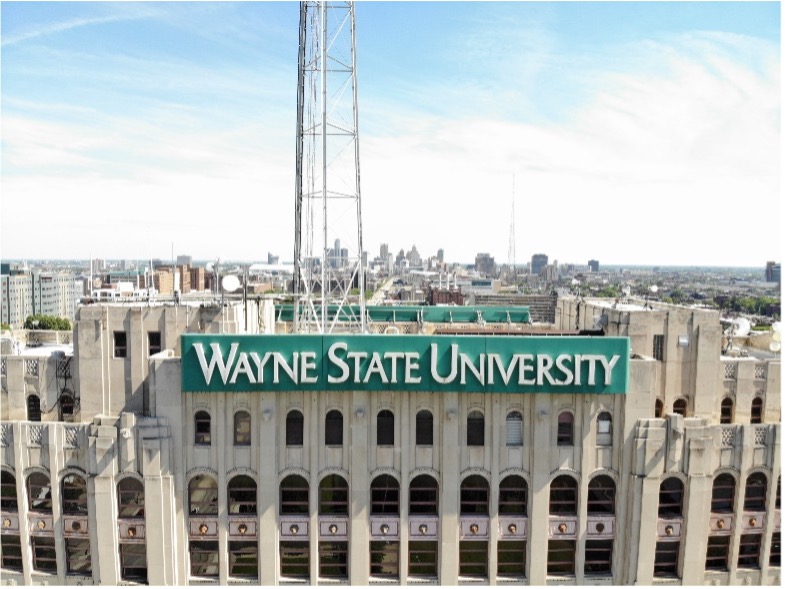 Founded in 1868, Wayne State is Michigan’s only urban public research university, holding Carnegie classification as an R1, doctoral-granting university with very high research activity as well as its Community Engagement classification. It has also received the Association of Public and Land-Grant University’s designation as an Innovation and Economic Prosperity University. As Detroit’s seventh-largest employer, Wayne State has 2,394 faculty members (922 full time), more than 4,500 regular staff, and approximately 1,600 student and part-time employees.
Founded in 1868, Wayne State is Michigan’s only urban public research university, holding Carnegie classification as an R1, doctoral-granting university with very high research activity as well as its Community Engagement classification. It has also received the Association of Public and Land-Grant University’s designation as an Innovation and Economic Prosperity University. As Detroit’s seventh-largest employer, Wayne State has 2,394 faculty members (922 full time), more than 4,500 regular staff, and approximately 1,600 student and part-time employees.
The university is the third largest among Michigan’s public universities, offering approximately 350 academic programs delivered by expert faculty. Located in the heart of Detroit, Wayne State serves almost 24,000 students. It is Michigan’s most diverse public university: 16% of its students identify as Black/African American, 7% as Hispanic or Latino, 10% as Middle Eastern/N. African and 15% as Asian. Wayne State stands out as an institution of access and opportunity for students from all backgrounds. Notably, 40% of its undergraduate population are first-generation college students and nearly half are Pell-eligible. Third Way rankings identify Wayne State as in its top tier for social mobility.
Wayne State serves the Detroit metropolitan region and the state of Michigan in its economic reinvigoration. Wayne State’s 200-acre campus lies in the heart of Midtown, a cultural and historic district in Detroit; and the university is a steadfast partner in the city’s economic life. Approximately 80% of alumni stay in Michigan, enabling Wayne State to serve as a talent pipeline for the region and a significant contributor to the state economy. Because of its excellence, Wayne State also attracts students from across the United States and beyond. The current student body includes students from 80 countries. The university’s global engagement effort has led to partnerships with institutions in the Middle East, Latin America, Europe, Korea, India, and China.
Wayne State serves a prominent role in conducting research and furthering knowledge with a community impact. In particular, Wayne State total research expenditures for the last year exceeded $240M, and the university is known for faculty research in chemistry, physics, biomedical and health sciences, mobility and automotive safety, neurosciences, alternative/sustainable energy, and nanoscience. Together, Wayne State, the University of Michigan, and Michigan State University form the University Research Corridor, the only national innovation cluster composed exclusively of public institutions.
The university comprises the following 13 schools and colleges: College of Education; College of Engineering; College of Fine, Performing and Communication Arts; Graduate School; Law School; College of Liberal Arts and Sciences; the Mike Ilitch School of Business; School of Information Sciences; Irvin D. Reid Honors College; School of Social Work; School of Medicine; College of Nursing; and the Eugene Applebaum College of Pharmacy and Health Sciences.
Our Moment in Time”
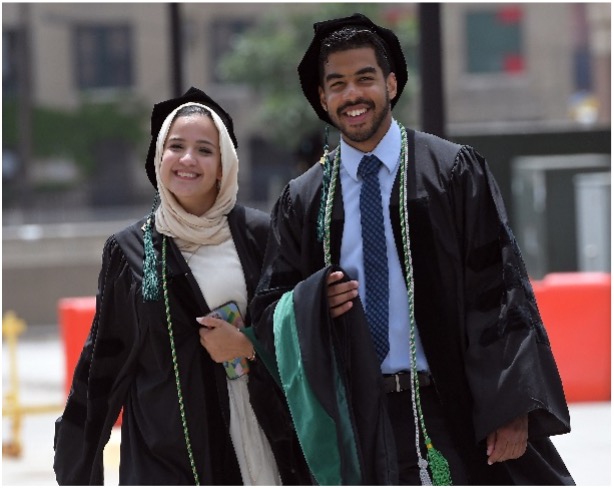 In January 2022, the Board of Governors approved Wayne State's 2022-27 strategic plan, Our Moment in Time. This plan reaffirms the university’s core mission, building upon the 2016-21 strategic plan and incorporating innovations started during the pandemic to allow more flexibility in remote work and online courses while remaining focused on the importance of faculty scholarship and engagement. In keeping with Wayne State’s core values, Our Moment in Time prioritizes student success and impactful engagement with the city of Detroit and surrounding communities, as well as academic excellence, research that tackles real-world problems, interdisciplinary collaboration, financial sustainability/operational excellence, DEI, and meaningful community engagement. To learn more about Our Moment in Time, please visit: president.wayne.edu/strategic-plan.
In January 2022, the Board of Governors approved Wayne State's 2022-27 strategic plan, Our Moment in Time. This plan reaffirms the university’s core mission, building upon the 2016-21 strategic plan and incorporating innovations started during the pandemic to allow more flexibility in remote work and online courses while remaining focused on the importance of faculty scholarship and engagement. In keeping with Wayne State’s core values, Our Moment in Time prioritizes student success and impactful engagement with the city of Detroit and surrounding communities, as well as academic excellence, research that tackles real-world problems, interdisciplinary collaboration, financial sustainability/operational excellence, DEI, and meaningful community engagement. To learn more about Our Moment in Time, please visit: president.wayne.edu/strategic-plan.
President Espy
Dr. Kimberly Andrews Espy was appointed the 13th president of Wayne State University in August 2023. A leader with more than 25 years of experience in higher education, President Espy previously served as provost and senior vice president for academic affairs at the University of Texas at San Antonio (UTSA). There, she championed social and economic opportunity by promoting affordable access to a top-quality research university education, moving UTSA to a Carnegie R1 classification, joining the Alliance of Hispanic Serving Research Universities after earning the Seal of Excelencia from Excelencia in Education for its commitment to serving Hispanic students, and recruiting and retaining outstanding diverse faculty.
Prior to serving as UTSA’s provost, President Espy was senior vice president for research at the University of Arizona. Research and development awards reached record highs, and she served on the leadership team that established an historic academic partnership with Banner Health and worked with industry and government partners to create the Defense Security Research Institute supporting mission-focused applications.
President Espy is an elected fellow of the American Association for the Advancement of Science. Her work has been funded by the National Institutes of Health since 2002, and she has earned more than $22 million in funding to study young children’s control of attention spans, something that promotes later learning, mental health, and health outcomes, and is affected by medical, social, and environmental factors.
Since her arrival, she has embraced Wayne State’s urban-serving, public research university mission through engagements with students, faculty, staff, community, alumni, and governmental stakeholders. In November, she launched the College to Career initiative to expand student success by intentionally connecting with industry, small business, community, service, and governmental employers for career preparation that can advance student social and economic mobility, enhance the health and well-being of local families, and promote regional innovation and business competitiveness.
The Community
 Detroit is the largest city in Michigan and a major port on the Detroit River, an international waterway that connects the western Great Lakes to Lake Erie and the Saint Lawrence Seaway. In 2021, the city had a population of approximately 633,000, with a surrounding metropolitan area of more than 5 million. The city’s population is primarily African American but increasingly diverse, with new residents representing a spectrum of ages, races, and cultures eager to participate in Detroit’s ongoing transformation. The southwest Detroit area has vibrant and growing Latino-American communities, and the city of Dearborn has the largest Arab-American community in the United States. The combined Detroit-Windsor (Ontario) metropolitan area, a critical commercial center on the U.S.-Canada border, has a total population of 5.7 million. About 25% of U.S.-Canadian trade crosses Detroit’s Ambassador Bridge, with a second bridge under construction. Detroit is synonymous with the American automobile industry and an important source of popular music legacies celebrated in the city's two familiar nicknames, “The Motor City” and “Motown.”
Detroit is the largest city in Michigan and a major port on the Detroit River, an international waterway that connects the western Great Lakes to Lake Erie and the Saint Lawrence Seaway. In 2021, the city had a population of approximately 633,000, with a surrounding metropolitan area of more than 5 million. The city’s population is primarily African American but increasingly diverse, with new residents representing a spectrum of ages, races, and cultures eager to participate in Detroit’s ongoing transformation. The southwest Detroit area has vibrant and growing Latino-American communities, and the city of Dearborn has the largest Arab-American community in the United States. The combined Detroit-Windsor (Ontario) metropolitan area, a critical commercial center on the U.S.-Canada border, has a total population of 5.7 million. About 25% of U.S.-Canadian trade crosses Detroit’s Ambassador Bridge, with a second bridge under construction. Detroit is synonymous with the American automobile industry and an important source of popular music legacies celebrated in the city's two familiar nicknames, “The Motor City” and “Motown.”
Detroit’s Midtown neighborhood is home to Wayne State as well as to world-class museums, theatres, libraries, concert halls, and professional sports venues. Among the cultural institutions within walking distance of the main campus are the main branch of the Detroit Public Library, the Detroit Institute of Arts, the Charles H. Wright Museum of African American History, the Michigan Science Center, the Fisher Theatre, Detroit Children’s Museum, the Detroit Public Theatre, the Detroit Historical Museum, and Orchestra Hall. Midtown has been at the heart of growth connected to Detroit’s historical resurgence.
The Division of Finance and Business Operations
The Division of Finance and Business Operations (Division) leads the university’s fiduciary stewardship by managing resources and providing extensive support services to enable the campus community to thrive. Specifically, the Division provides centralized management of the university’s day-to-day financial and budgetary activities as home to the following units: Business Services, Facilities Planning & Management, Fiscal Operations/Finance, Human Resources, Wayne State University Police Department, Treasury Services, and Risk Management.
Business Services
This unit provides a variety of centralized operational services to the campus community, including procurement, mail and receiving, accounts payable, and OneCard contracted services. These services were merged into one unit in late 2017 as part of a reorganization in which Housing and Auxiliary Services moved to the academic side.
Facilities Planning & Management (FP&M)
FP&M is charged with providing safe, comfortable, and well-maintained facilities for the Wayne State community. It is organized into eight primary areas: Design and Construction Services; Planning and Space Management; Facilities Operations and Maintenance (hard and soft services); Business Services; Energy Management, Office of Sustainability; Parking and Transportation; and Real Estate and Asset Management.
Finance
The Finance unit is responsible for managing the university's finances and financial systems, stewardship and investment of the university’s cash and endowment assets, resource planning and allocation, and development of a long-term financial plan aligning activity with the university's strategic priorities. Finance includes Fiscal Operations/Controller; Treasury Services; the Office of the University Budget; the Bursar; and Enterprise Risk Management.
Human Resources (HR)
HR provides services to the leadership and employees of the schools, colleges, and divisions within Wayne State. HR is charged with providing timely services, guidance and information in the areas of employment, employee relations, compensation administration, benefits, policy interpretation, payroll, and employee development in support of the university's strategic priorities.
Wayne State University Police Department (WSUPD)
WSUPD is responsible for maintaining the security of the campus community. Its officers engage the community, patrol campus and neighboring areas; offer important safety resources; and respond to emergencies. WSUPD plays a vital role in making Wayne State a welcoming home, school, and workplace for thousands of people.
The Position
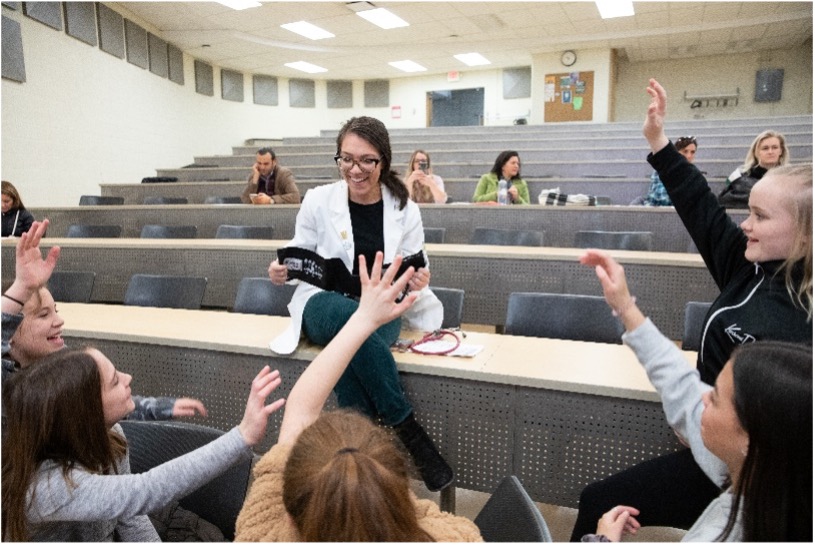 Reporting to President Espy, the Senior Vice President for Finance and Business Affairs, and Treasurer is responsible for leading all aspects of the Division and managing a staff of approximately 600. As the university’s business officer, the SVP must be a strategic and critical thinker who is skilled at diplomacy, collaboration, and consultation, with proven broad-based leadership experience and management skills. The SVP serves as the treasurer to the university’s Board of Governors and to the Wayne State University Foundation Board.
Reporting to President Espy, the Senior Vice President for Finance and Business Affairs, and Treasurer is responsible for leading all aspects of the Division and managing a staff of approximately 600. As the university’s business officer, the SVP must be a strategic and critical thinker who is skilled at diplomacy, collaboration, and consultation, with proven broad-based leadership experience and management skills. The SVP serves as the treasurer to the university’s Board of Governors and to the Wayne State University Foundation Board.
The SVP's direct reports include the following:
- Senior Associate Vice President for Finance and Business, and Chief Financial Officer
- Associate Vice President, Facilities Planning & Management
- Associate Vice President, Business Services
- Senior Director, Business Affairs
- Associate Vice President and Chief Human Resources Officer
- Associate Vice President and Chief of Police
 As a senior member of the president’s leadership team, the SVP participates in institutional decision-making by providing an overall administrative and operational perspective on management and utilization of the university’s resources to serve the academic, research, and institutional goals of the university. The SVP plays an important role in addressing budgetary issues in consultation with the president and with the provost, serving on several executive-level university committees that set direction in critical areas, including information technology, strategic planning, budget planning, and space allocation. The SVP must build confidence both externally and internally in the university’s physical and financial stability; be consultative in decision-making; and serve as an effective advocate in elevating Wayne State’s presence in Detroit, Michigan and beyond.
As a senior member of the president’s leadership team, the SVP participates in institutional decision-making by providing an overall administrative and operational perspective on management and utilization of the university’s resources to serve the academic, research, and institutional goals of the university. The SVP plays an important role in addressing budgetary issues in consultation with the president and with the provost, serving on several executive-level university committees that set direction in critical areas, including information technology, strategic planning, budget planning, and space allocation. The SVP must build confidence both externally and internally in the university’s physical and financial stability; be consultative in decision-making; and serve as an effective advocate in elevating Wayne State’s presence in Detroit, Michigan and beyond.
Key Opportunities and Challenges
Wayne State seeks an experienced and dynamic leader who will:
Lead Strategically and with Courage
As described in Wayne State’s strategic plan, the realization of the university’s mission and vision requires solid financial footing and operational effectiveness. The next SVP will establish a renewed culture of fiscal excellence, improved acumen, responsive tools, and sound understanding of costs and revenues across all university funding sources and expenses. The SVP will enhance efficiency of operations, prioritize projects and initiatives, and seek to increase revenue sources, where possible and comporting with the university’s mission, through innovation and multiple avenues.
Ensure Financial Stability
Given diminishing state appropriations and foreseeable enrollment declines that make it difficult for a university to sustain a financial model, the SVP will provide sound financial advice guided by the strategic needs of Wayne State. To accomplish this, the SVP will optimize existing revenue streams and seek, with consultation, new sources of revenue, implement a tailored budget model that allocates financial resources strategically, scale capital assets, support enrollment and research initiatives, and work with leadership to enhance the culture of philanthropy across Wayne State.
Pursue Operational Excellence
The next SVP will lead the review of existing business and finance-related policies, practices, and procedures to enhance areas of excellence and identify areas for improvement. Based on such a review, the SVP will allocate resources within the division to optimize delivery of services and work with the president as well as the provost and vie president of research on allocation among academic and non-academic needs. By promoting continual assessment and improvement, the SVP will implement action plans to provide a thriving environment for faculty, staff, students, and the community Wayne State serves.
Facilitate Capital Planning
The SVP will evaluate Wayne State’s current inventory of space, land, and buildings to accurately appraise resources available for deferred maintenance, promote sustainable practices to maximize resource utilization, and strategically address possible disposition of little-used assets with limited future potential. The SVP will provide expert advice to establish the appropriate physical dimensions of the campus, giving proper consideration to its urban mission and identity and possible future.
Promote Transparency
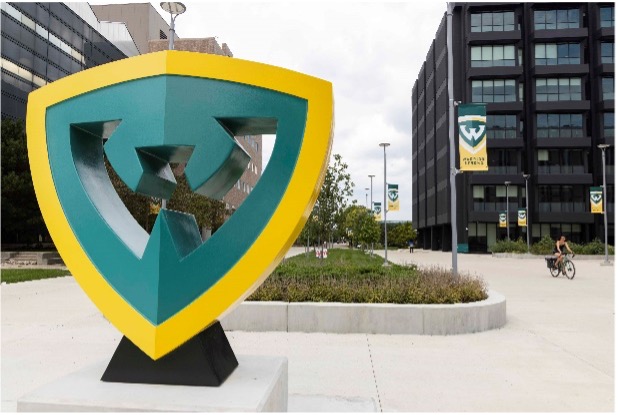 The SVP will foster an environment that promotes collaboration and open and timely communication with Wayne State’s stakeholder groups. By being engaged across campus, the SVP will participate in productive conversations that will build ground support for substantial undertakings and develop successful initiatives and partnerships.
The SVP will foster an environment that promotes collaboration and open and timely communication with Wayne State’s stakeholder groups. By being engaged across campus, the SVP will participate in productive conversations that will build ground support for substantial undertakings and develop successful initiatives and partnerships.
Maximize the Division’s Potential
The SVP will lead a division of skilled and dedicated administrative leaders by instilling a culture of excellence, breaking through silos, embracing collaboration, and identifying opportunities for success and professional development. The SVP will address challenges related to staff retention, aging workforce, compensation equity, and competitive environment.
Advance the Academic Enterprise
The SVP will play an instrumental role in elevating Wayne State’s research enterprise and student learning experiences by strengthening the physical environment of the campus and its facilities through renovations, new construction, and enhanced processes that support student learning and faculty scholarship. To support these efforts, the SVP will work closely with the provost, the senior vice president for academic affairs, and the vice president for research.
Personal Attributes
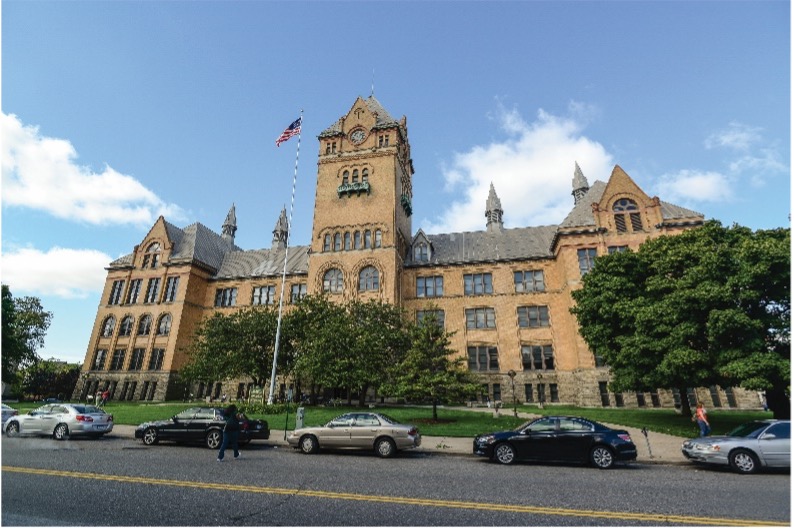 To advance Wayne State and elevate its presence in Detroit, Michigan, and beyond, the SVP will possess the following experiences, abilities, and skills:
To advance Wayne State and elevate its presence in Detroit, Michigan, and beyond, the SVP will possess the following experiences, abilities, and skills:
- Knowledge and experience in optimizing budget resources, leading an organization in an environment of limited financial resources, and making fiscal decisions consistent with campus values, strategic planning, and unexpected opportunities.
- Experience valuing unionized employees and the relationships delineated in collective bargaining agreements.
- Knowledge and appreciation for shared governance and the importance of building collaborative relationships with the Academic and Student Senates.
- Exceptional interpersonal and communication skills, including the ability to listen to and learn from differing opinions and viewpoints.
- An understanding of the unique requirements of clinical, animal, and wet lab-intensive disciplines such as those represented in the STEM departments, School of Medicine, School of Nursing and other professional licensing fields within the university.
- Experience leading an organization through institutional growth and cultural change.
- Evidence of the ability to embrace technology to increase efficiency of campus processes.
- An understanding of the impact of a university and its business processes within a large city and metropolitan region with the kind of diverse populations that Wayne State serves, coupled with experience in creating and strengthening external partnerships that significantly enhance a university’s impact.
Qualifications
The best candidates for the SVP role will have the following experiences or attributes:
- An advanced degree, preferably an M.B.A., from an accredited university. Advanced degrees and professional certifications in other related fields are also welcome.
- An extensive financial and business background, including financial and investment management, general administration, facilities management, contract negotiations and administration, short/long term operational planning and budgeting, and strategic planning.
- Experience managing and delegating work to multiple units with differing responsibilities through a team of direct reports.
- Experience in collaborating with and managing large, complex, and decentralized organizations; work within universities; government; health care; or a similar complex organization is highly desirable.
- Strong knowledge and understanding of enterprise risk management, internal controls, and business ethics.
- Experience in implementing and streamlining policies and procedures that remove inefficiencies and promote collaboration across multiple operational areas.
- Knowledge of real estate, building construction; plant operations; utilities; and sustainability practices, including recycling, green building practices, and energy conservation.
- Evidence of ability to work with varied groups to negotiate compromised solutions in difficult situations.
- Excellent communication skills, including written and verbal presentation and listening skills.
- Experience as a trusted decision-maker with sound business, professional, and ethical judgment.
Although administrative leadership experience in higher education is preferred, Wayne State is open to applications from candidates who have achieved noteworthy success in their respective fields outside higher education to apply. These candidates must have demonstrated experience and a record of success working in a complex organization where success is achieved in partnership and collaboration rather than solely through direct authority.
Application/Nomination Process
The Search Committee will begin reviewing applications in early March and will continue to accept applications and nominations until the position is filled. Applicants must submit a current curriculum vitae and a letter of interest describing relevant experience and interest in the position. Submission of materials via e-mail is strongly encouraged. Nomination letters should include contact information for the nominee. All nominations and applications will be handled in confidence.
Applications and letters of nomination should be submitted to:
Alberto Pimentel, Managing Partner
Emy Cruz, Partner
6512 Painter Avenue, Whittier, CA 90601
562-360-1353 (FAX)
Email: apsearch@spaexec.com
Refer to code “Wayne State SVP” in subject line
Search committee
- Laurie Clabo, Committee Chair, Provost and Senior Vice President of Academic Affairs
- Ali Abolmaali, Dean, College of Engineering
- Matthew Allen, Professor of Chemistry
- Linda Beale, Professor of Law
- Richard Bierschbach, Dean, Law School
- Rob Davenport, Associate Vice President, Facilities Planning and Management
- Bethany Gielczyk, Chief Financial Officer, and interim Senior Vice President for Business Affairs and Treasurer
- Denise Lewis, retired partner at Honigman Miller Schwartz and Cohn LLP (WSU Foundation Board)
- Patrick Lindsey, Vice President of Government and Community Affairs
- Patricia Romer, Associate Vice President for Student Auxiliary Services and Chief Housing Officer
- Thane Peterson, Vice Dean of Finance and Administration, School of Medicine
- Ned Staebler, Vice President for Economic Development and President and CEO of TechTown
- Erika Wallace, Director of Athletics
Wayne State University is an equal opportunity employer. No person will be discriminated against or harassed in employment because of race, color, religion, gender, national origin, age, disability, familial status, marital status, arrest record, height, weight, sexual orientation, qualified Vietnam era veterans, qualified special disabled veterans, recently separated veterans, and other protected veterans, or any other characteristic protected by applicable federal or state law.